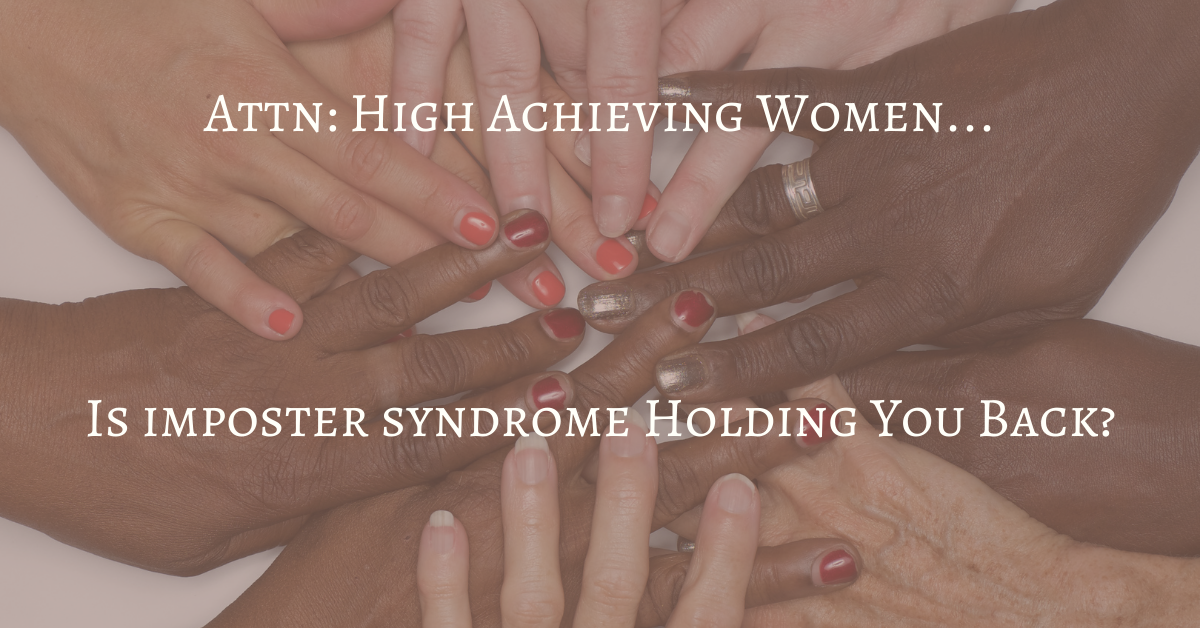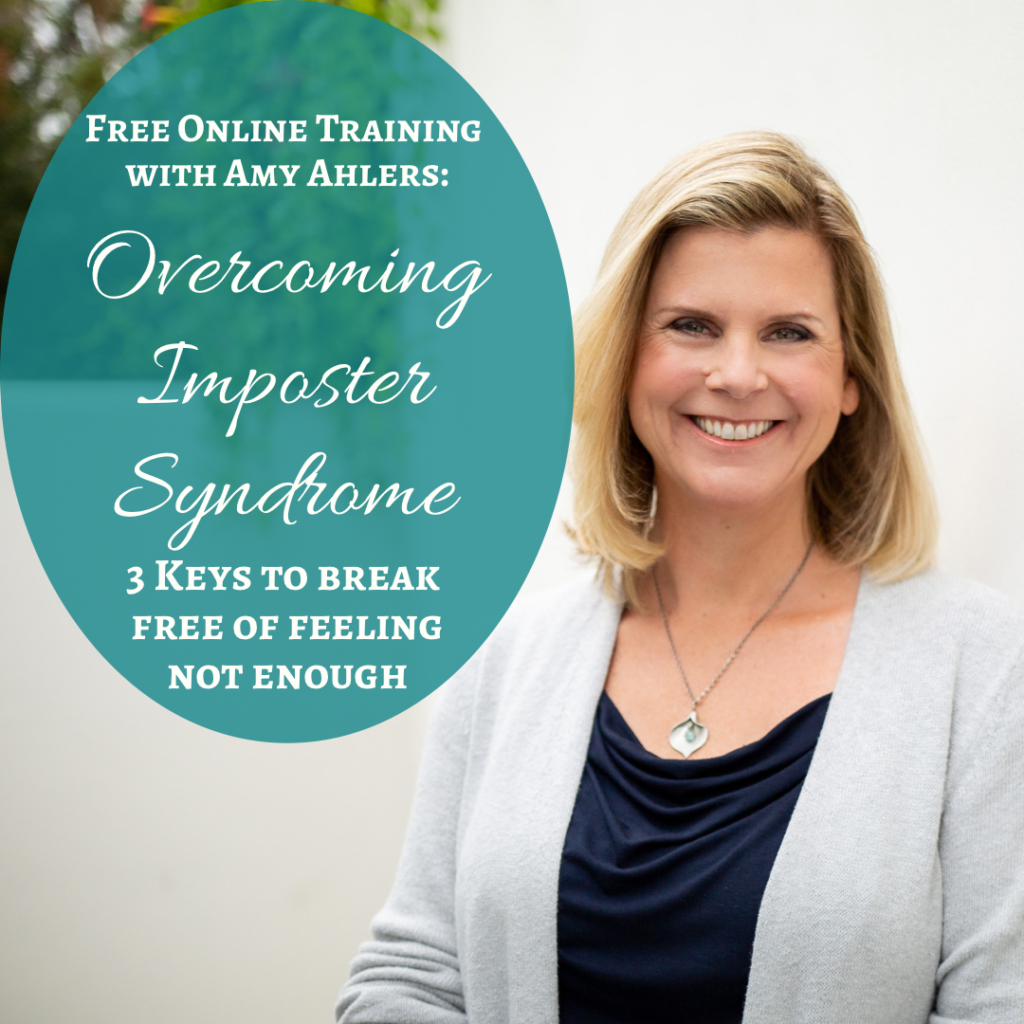As a women’s leadership expert coach, keynote speaker and bestselling author for over 21 years, I’ve seen time and time again that Imposter Syndrome is one of the biggest things that gets in the way of brilliant, powerful women rising to the leadership and success they desire (and, quite frankly, deserve).
You know the feeling, right?
You walk into a meeting (or zoom into a meeting as the case may be) and feel a lump in your throat. You’ve prepared, ok fine OVER prepared, and are ready to make your contribution.
The time comes for you to speak up and you hesitate. Maybe you even freeze up. You have a voice in your head saying, “Who do you think you are? If you speak up, they’re going to find out you’re a fraud!”
You try to shake it off. You might even say a few words, but your true power and confidence are nowhere to be found.
You leave the meeting feel defeated and immediately beat yourself up! How could you let this happen again?
Or maybe you do OK in meetings, but you are incredibly hard on yourself when you do succeed. You are sure that any compliment or acknowledgement of your work is only someone trying to be nice. Or the fact that you just became the top sales manager is simply due to luck (even though it’s your twelfth time!).
Imposter syndrome hijacks your confidence, contribution, and celebrations.
You are not alone. Imposter syndrome is all too common.
A 2019 study called “Overcoming Impostor Feeling; How Senior Executives Manage Their Insecurities” found that female leaders experience imposter syndrome to a higher degree than men. More than half (54%) of women scored frequent or high versus a quarter (24%) of men. Unconscious bias around gender and leadership is a likely contributing factor, the researchers stated.
In my own experience in the past two decades of coaching many emerging, rising and established women leaders, I’ve found imposter syndrome to be extraordinarily common and paralyzing when left unchecked.
Sometimes Imposter Syndrome can be a bit illusive, so I want to share with you 7 signs that it’s afoot:
- You never feel enough: When you feel like a fraud or imposter, you constantly feel like you just can’t measure up. You feel small, inadequate and swim in a sea of self-doubt.
- You expect perfection: Unrealistic expectations run amuck when you suffer from Imposter Syndrome. You beat yourself up for the tiniest imperfections and that can make you procrastinate or hold back altogether. Perfectionism is brutal and is a sure fire way to lead you to feeling inadequate.
- You compare and despair: Do you constantly compare your worst to everyone else’s best? It’s a setup for feeling like a fraud and an imposter. I like to tell my clients to stop comparing the truth of your life to someone else’s curated social media account. It’s far from apples to apples, and you never know the truth of someone else’s life. Hence the perfect holiday card in the mail boasting of effortless perfection, followed by the announcement of a divorce two weeks later.
- You constantly feel like you need to prove yourself: The underlying belief is that you haven’t earned your place, no matter how many dues you’ve paid in full. You feel like you’ll be found out at any moment, so you keep dancing as fast as you can, proving your worth by over-preparing, excessively talking, or collecting evidence to boost your fragile ego.
- You self-sabotage: When the imposter narrative feels like truth, you will sabotage your success. It might show up as procrastination, resistance, or running worst case scenarios until you don’t even bother trying. If you feel like you have a pattern of being self-destructive, chances are imposter syndrome is part of the problem.
- You never feel like you actually belong: It’s easy to walk into a room or meeting, even online, and feel like an imposter. Especially if you’re the only woman or woman of color in the room. Feeling like an outsider eats away at your confidence, joy and self-esteem.
- You attribute your success to luck: Whenever you have a win, cross the finish line or have a triumph, you are quick to think of it as dumb luck vs. actually owning it. You dole out credit to others in abundance, but giving yourself credit is rare.
Does any of the above sound familiar? Then Imposter Syndrome may be running the show in your life.
The truth is Imposter Syndrome is part of the human experience, but it doesn’t have to hijack your life or success.
If you are ready to overcome Imposter Syndrome and own your worth and accomplishments, I have two free resources for you:
- Begin by taking a free Imposter Syndrome Quiz here to begin unraveling it.
- Attend my upcoming FREE training: Overcoming Imposter Syndrome: 3 Keys to Break Free of Feeling Not Enough.
May you always be in tune with the truth of how worthy, brilliant and valuable you are.
With Unstoppable Enthusiasm,





View comments
+ Leave a comment